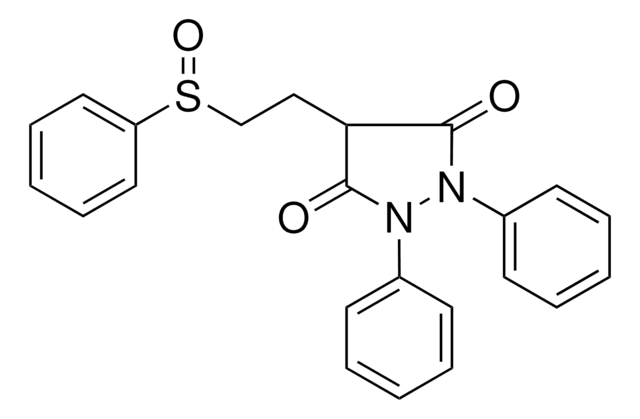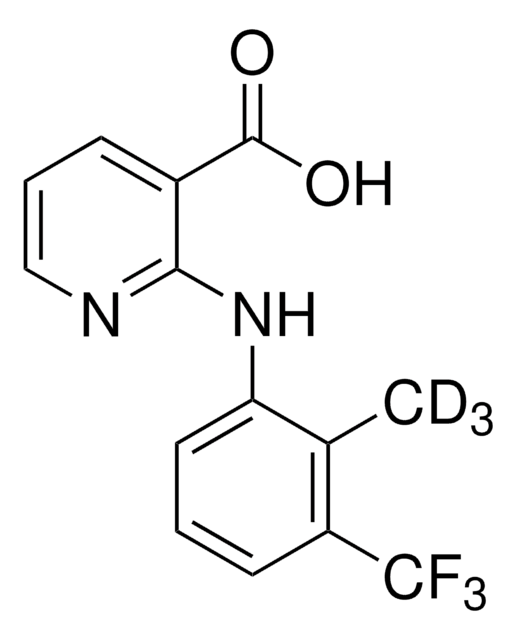M2017
Mazindol
≥98% (TLC), powder
Synonym(s):
5-(4-Chlorophenyl)-2,5-dihydro-3H-imidazo[2,1-a]isoindol-5-ol
About This Item
Recommended Products
Assay
≥98% (TLC)
form
powder
drug control
USDEA Schedule IV; Home Office Schedule 3; psychotrope (France); kontrollierte Droge in Deutschland; regulated under CDSA - not available from Sigma-Aldrich Canada; psicótropo (Spain); Decreto Lei 15/93: Tabela IV (Portugal)
color
white
solubility
DMSO: 10 mg/mL
originator
Wyeth
SMILES string
OC1(C2=CC=C(Cl)C=C2)C3=CC=CC=C3C4=NCCN14
InChI
1S/C16H13ClN2O/c17-12-7-5-11(6-8-12)16(20)14-4-2-1-3-13(14)15-18-9-10-19(15)16/h1-8,20H,9-10H2
InChI key
ZPXSCAKFGYXMGA-UHFFFAOYSA-N
Gene Information
human ... SLC6A2(6530) , SLC6A3(6531) , SLC6A4(6532)
rat ... Htr1a(24473) , Htr2a(29595) , Slc6a3(24898) , Slc6a4(25553)
Looking for similar products? Visit Product Comparison Guide
Biochem/physiol Actions
Features and Benefits
Signal Word
Danger
Hazard Statements
Precautionary Statements
Hazard Classifications
Acute Tox. 2 Oral - Acute Tox. 3 Dermal - Acute Tox. 3 Inhalation
Storage Class Code
6.1A - Combustible acute toxic Cat. 1 and 2 / very toxic hazardous materials
WGK
WGK 3
Personal Protective Equipment
Certificates of Analysis (COA)
Search for Certificates of Analysis (COA) by entering the products Lot/Batch Number. Lot and Batch Numbers can be found on a product’s label following the words ‘Lot’ or ‘Batch’.
Already Own This Product?
Find documentation for the products that you have recently purchased in the Document Library.
Our team of scientists has experience in all areas of research including Life Science, Material Science, Chemical Synthesis, Chromatography, Analytical and many others.
Contact Technical Service








